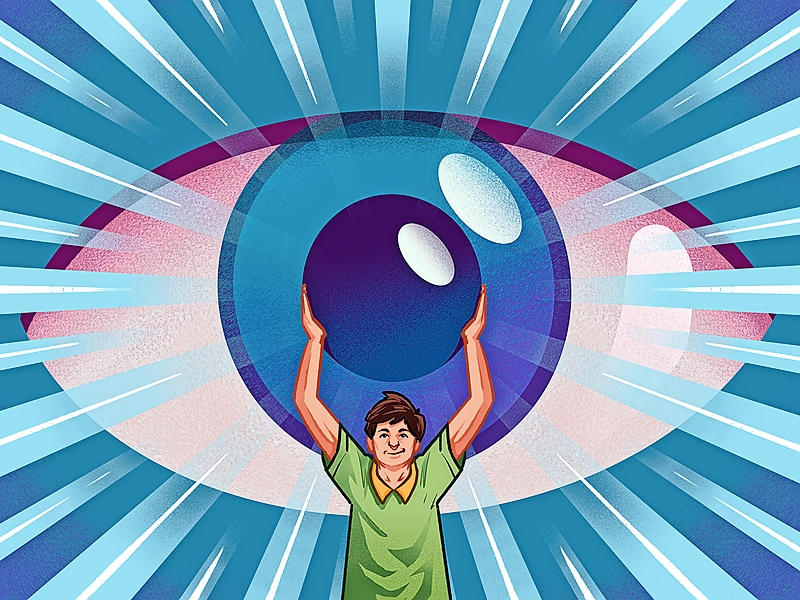The Eyes Have It
By Mark Loehrke
Appears in the August 2022 issue.

While most people have routine checkups with their physician and dentist (not to mention their mechanic and manicurist), many never visit an eye doctor until a problem arises. Unfortunately, by then the bulk of the damage may be done. Preventative eye care is a must for protecting your vision.
“As with your overall health, eye examinations are recommended annually,” says Dr. Paula Mintchell, who has been practicing optometry for 21 years and running her own practice at Vision Art Eye Care in Naperville since 2012. “Having a healthy diet, wearing sunglasses, and good consistent care by someone you trust can go a long way. Our profession has made great advances in technology to identify early changes, which can often prevent advanced problems later in life.”
In terms of personal prevention, Mintchell would like to see more people practice better self-care when it comes to protecting their eyes. She offers several clear suggestions for staving off common threats that can challenge your vision every day.
Sun damage
Between the increase in sunlight and the profusion of pollen, summer isn’t always a fun, fun, fun season for the eyes. Like most optometrists, Mintchell says a pair of quality polarized sunglasses with full UV protection can help protect your vision from harmful rays.
For those suffering from allergies that affect the eyes, she recommends seeking advice from your doctor regarding the best medications to help with those symptoms. “Some over-the-counter medications can actually make some symptoms worse,” she notes. “In any case, it’s important to not rub your eyes but instead apply cool compresses when you just can’t get them to stop itching.”
Mean screens
Many of us spend a lot of time fixated on the little computers in our pockets. From work to leisure to everything in between, screens are an inevitability of modern life—and, in many cases, an inevitable strain on our vision. Mintchell says it’s important to take breaks to focus on distant objects and give your eyes some much-needed rest—she recommends a break at least every 20 to 30 minutes for adults and limiting screen time for children to just an hour a day to help prevent the growing issue of myopia (nearsightedness). She also says computer glasses can help reduce blue-light exposure and prevent premature aging changes in the eyes.
Guard in the yard
One of the biggest threats to eye health in the summer is a generally preventable one—damage from flying debris or projectiles thrown by lawn equipment such as mowers and trimmers. The simple solution? “Always wear good eye protection when performing yard work or home repairs,” Mintchell says.
Photo courtesy of Vision Art Eye Care
Illustration by Kevin Sterjo


